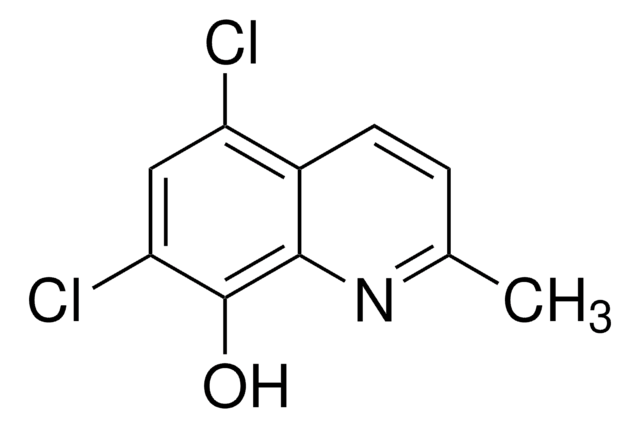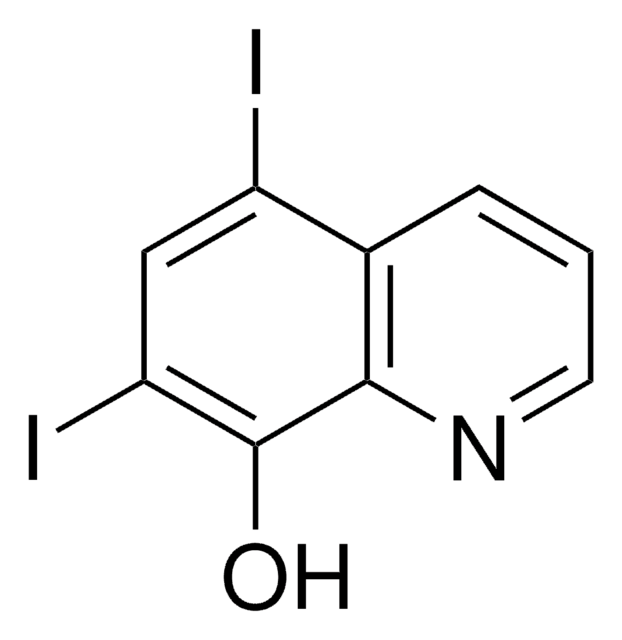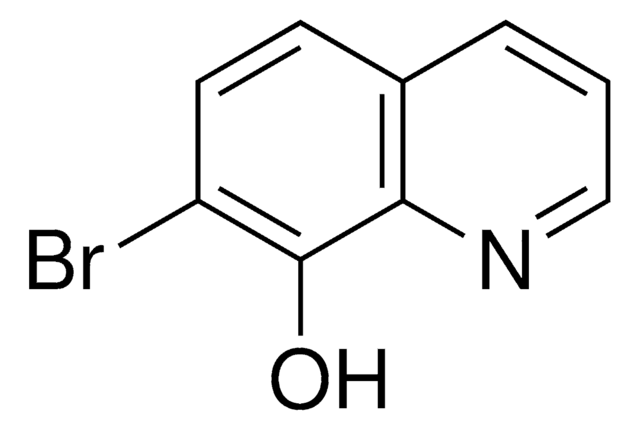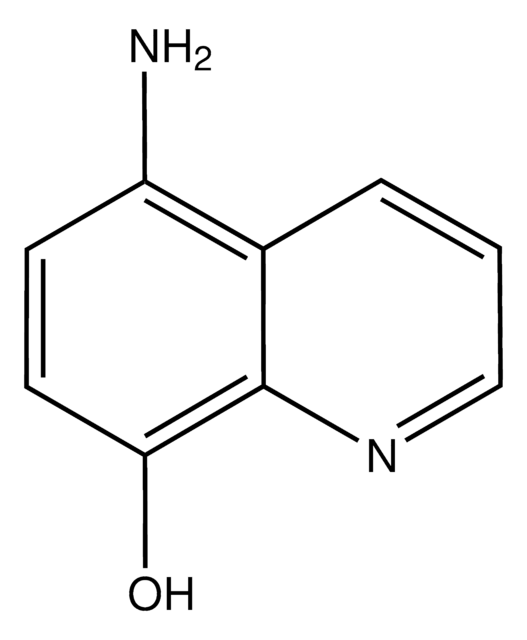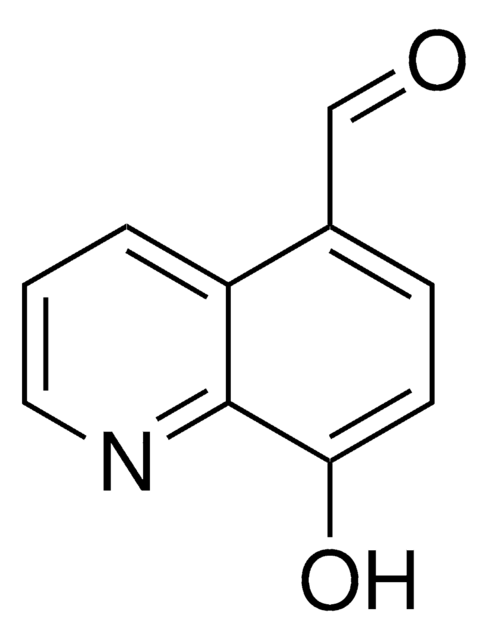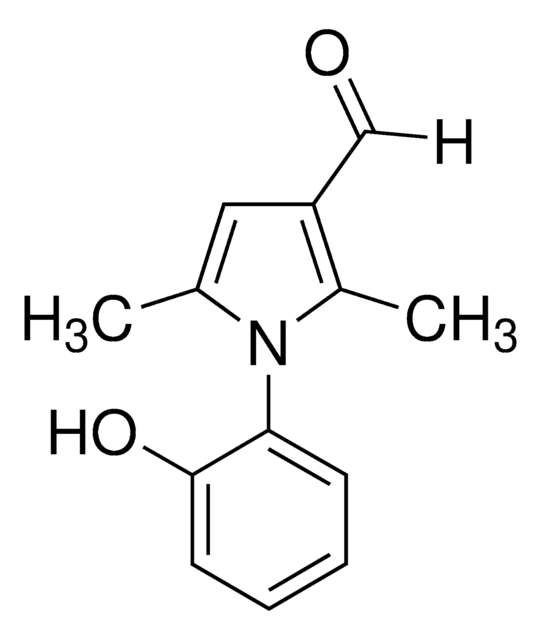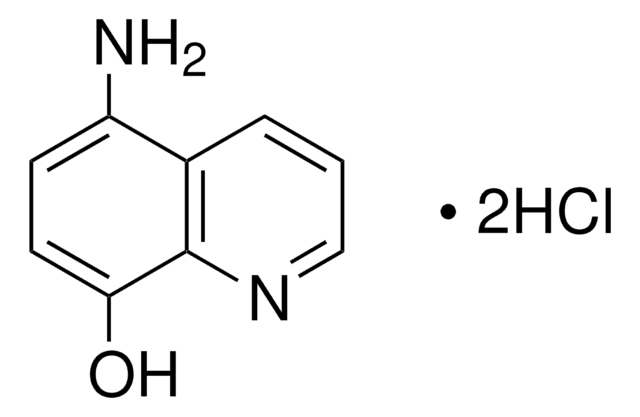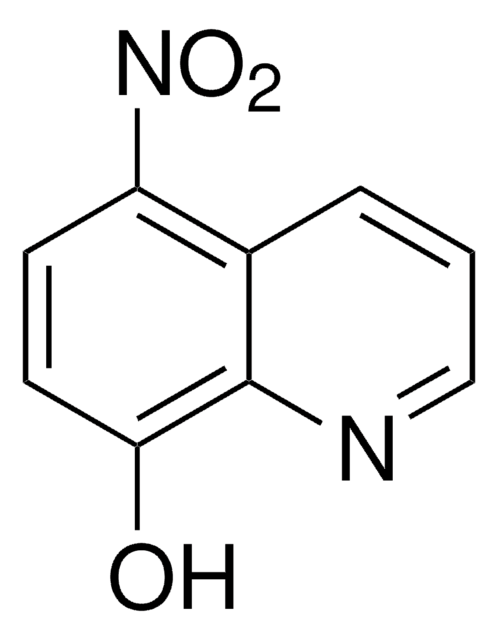Összes fotó(2)
Fontos dokumentumok
D123609
5,7-Diiodo-8-hydroxyquinoline
95%
Szinonimák:
5,7-Diiodo-8-quinolinol
Bejelentkezésa Szervezeti és Szerződéses árazás megtekintéséhez
Összes fotó(2)
About This Item
Tapasztalati képlet (Hill-képlet):
C9H5I2NO
CAS-szám:
Molekulatömeg:
396.95
EC-szám:
MDL-szám:
UNSPSC kód:
12352100
PubChem Substance ID:
NACRES:
NA.22
Javasolt termékek
Minőségi szint
Teszt
95%
form
crystals
mp
>200 °C (dec.) (lit.)
SMILES string
Oc1c(I)cc(I)c2cccnc12
InChI
1S/C9H5I2NO/c10-6-4-7(11)9(13)8-5(6)2-1-3-12-8/h1-4,13H
Nemzetközi kémiai azonosító kulcs
UXZFQZANDVDGMM-UHFFFAOYSA-N
Looking for similar products? Látogasson el ide Útmutató a termékösszehasonlításhoz
Figyelmeztetés
Danger
Figyelmeztető mondatok
Óvintézkedésre vonatkozó mondatok
Veszélyességi osztályok
Acute Tox. 4 Oral - Eye Dam. 1
Tárolási osztály kódja
11 - Combustible Solids
WGK
WGK 3
Lobbanási pont (F)
Not applicable
Lobbanási pont (C)
Not applicable
Válasszon a legfrissebb verziók közül:
Már rendelkezik ezzel a termékkel?
Az Ön által nemrégiben megvásárolt termékekre vonatkozó dokumentumokat a Dokumentumtárban találja.
Az ügyfelek ezeket is megtekintették
S Ghaskadbi et al.
Mutation research, 222(3), 219-222 (1989-03-01)
We have previously shown that the common antiamebic drug diiodohydroxyquinoline (DIHQ) exhibits mutagenic activity in the in vivo micronucleus test in Swiss albino mice. Results of experiments undertaken to study the influence of ascorbic acid (vitamin C) on the mutagenicity
A K Fisher et al.
Journal of toxicology. Clinical toxicology, 31(1), 113-120 (1993-01-01)
This case report describes seizures and encephalopathy in a nine year-old boy treated with iodoquinol for amebiasis. The toxicity of iodoquinol and other 8-hydroxyquinolines is discussed. The radiopacity of this medication, used worldwide for the treatment of diarrheal illnesses and
F T Chan et al.
Antimicrobial agents and chemotherapy, 38(5), 1157-1160 (1994-05-01)
Susceptibility testing was performed on Dientamoeba fragilis ATCC 30948 in a dixenic culture with Klebsiella pneumoniae and Bacteroides vulgatus. D. fragilis was cocultured with the bacteria in TYGM-9 medium (ATCC medium 1171). The activities of antiparasitic drugs were assessed by
Huai-Ren Chang et al.
Internal medicine (Tokyo, Japan), 51(5), 471-474 (2012-03-03)
Amoebiasis is a worldwide parasitic infection although it is more prevalent in the subtropical and tropical countries. Extraintestinal amoebic infections currently have been reported in increased numbers of male homosexuals and immunocompromised patients. Here, we present an interesting case of
Relapse of intestinal and hepatic amebiasis after treatment.
Elizabeth W Hwang et al.
Digestive diseases and sciences, 56(3), 677-680 (2010-12-22)
Tudóscsoportunk valamennyi kutatási területen rendelkezik tapasztalattal, beleértve az élettudományt, az anyagtudományt, a kémiai szintézist, a kromatográfiát, az analitikát és még sok más területet.
Lépjen kapcsolatba a szaktanácsadással

